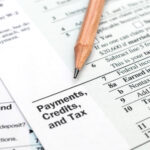By Terry Barrett, CPA, Tax Senior Manager

By Terry Barrett, CPA, Senior Tax Manager | State and Local Tax Team
Virginia Breweries, Distilleries and Wineries may face additional taxes if they rent their space for events
The Virginia Department of Taxation recently issued an advisory opinion on whether a farm winery can be required to have a separate business license for its rental of its facilities and catering of special events. While the Department previously ruled on substantially the same issue in 2012, the most recent ruling may come as a surprise to both farm wineries and localities. Further, it may have implications for breweries, distilleries, and others who similarly have limited local license taxes but who also may rent out their facilities for events.
Under Virginia law, a locality may impose up to a 50 dollar per year license tax on farm wineries. A farm winery is generally defined as an establishment located on a farm or agriculturally zoned land with a producing vineyard, orchard, or similar growing area, or with agreements for purchasing grapes or other fruits from growers with the Commonwealth, and facilities for fermenting and bottling wine on the premises where the owner or lessee manufacturers wine that contains not more than 21 percent alcohol by volume. The farm winery license authorizes a farm winery to manufacture wine and sell the wine at retail at the place of business designated in the licenses.
A Separate Business License May be Required for Facility Rentals
The recent advisory opinion, Ruling of the Tax Commissioner (“PD”) 20-18 (February 6, 2020), reaffirmed the Department’s determination in PD 12-220 (December 12, 2012) that a locality may require a farm winery to have a separate business license for the rental of its facilities for events and pay additional business license taxes (BPOL), if the rental activities constitute a separate business. Businesses may have one or more local business licenses, depending upon their activities. If the activities are ancillary, subordinate to, or subservient to the business’ primary business activity, they may not require a separate business license. However, to the extent the business activities may operate independently of each other, separate licenses may be required by a locality. In the 2012 Ruling, the Department determined that an agreement for the rental of facilities is similar to rental agreements provided by other businesses that rent facilities for special events, such as hotels, restaurants, clubs, museums, theaters, and others. Thus, the rental business is the type of business activity that may be considered to exist independently and constitute a separately licensable activity.
In some instances having separate business classifications may work to the advantage of a taxpayer, if they can have a portion of their gross receipts taxed at a lower rate, as may be the case with a business that sells at both wholesale and retail. However, for wineries and others for which the special events may be considered a separate license, it may result in a substantially higher local license tax liability and possibly assessments for back taxes, interest and penalties.
It is worth noting that BPOL is a local tax so each locality has flexibility in determining taxability in these circumstances. Wineries, breweries, distilleries, and others that have been paying the limited local license fees and are engaged in renting their facilities for special events, should carefully review their locality’s BPOL rules and consider whether separate business license requirements may exist. Localities may seek back taxes due for the six preceding years plus the current year if they determine there was a failure to apply for a license. Interest and penalties may also be assessed.
Please reach out to your Keiter advisor or Email | Call: 804.747.0000. We have substantial experience with business license issues.
Additional Resources
About the Author
The information contained within this article is provided for informational purposes only and is current as of the date published. Online readers are advised not to act upon this information without seeking the service of a professional accountant, as this article is not a substitute for obtaining accounting, tax, or financial advice from a professional accountant.



